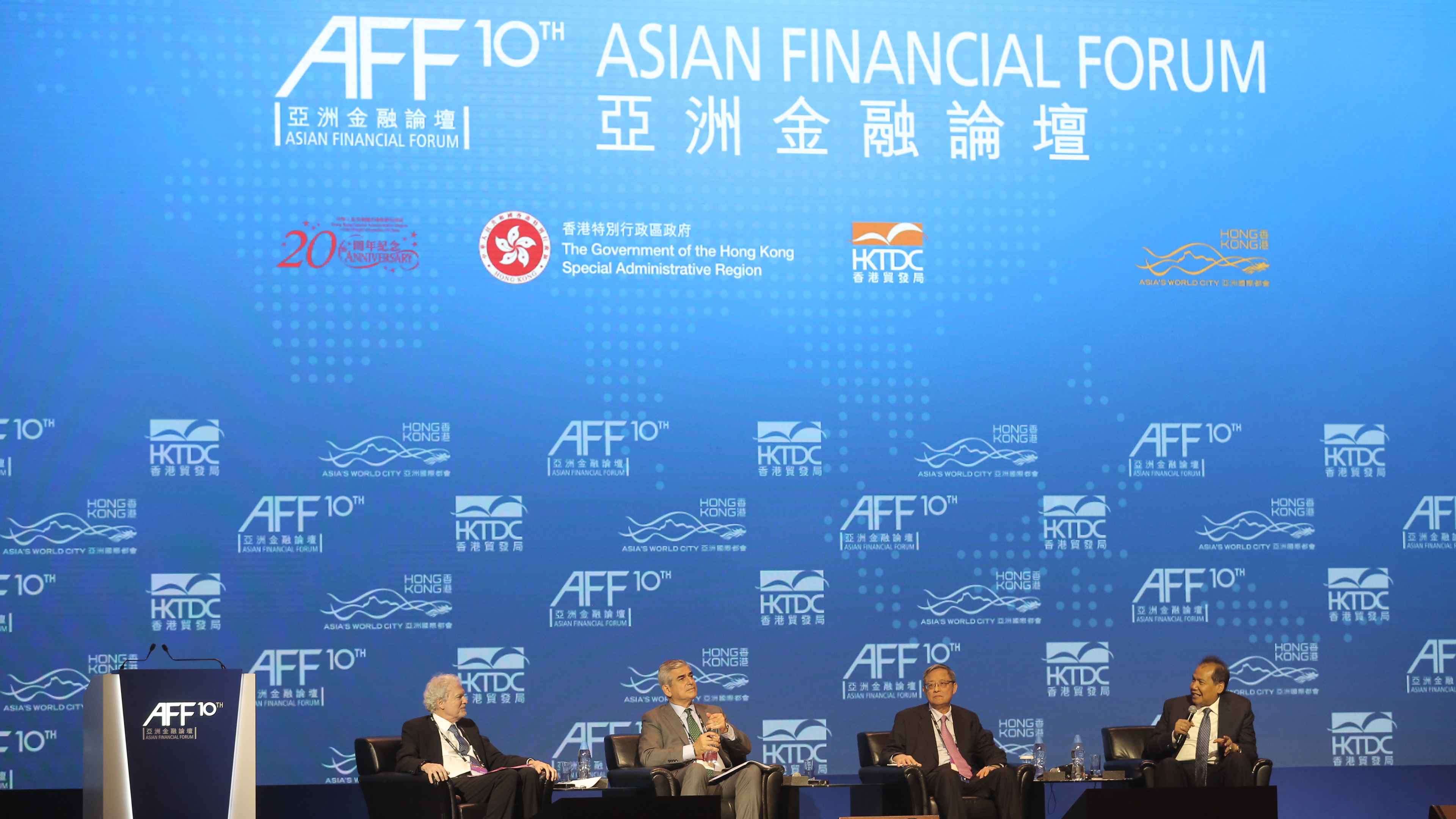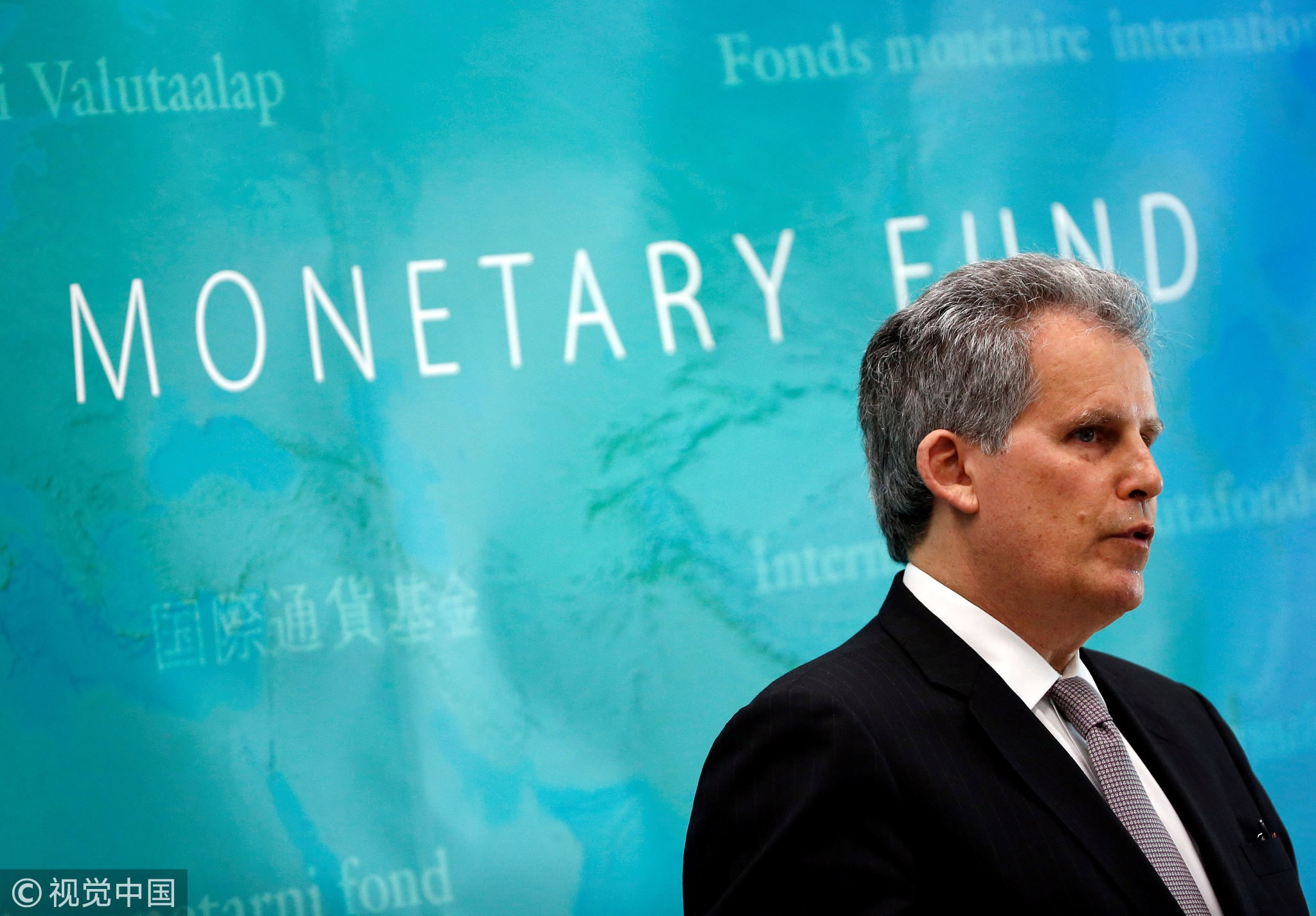
Opinions
21:44, 18-Jan-2018
Opinion: Fix the roof when the sun is shining
Guest commentary by John Gong

David Lipton, IMF's first deputy managing director, delivered the first keynote speech at the 2018 Asian Financial Forum this Monday in Hong Kong, opining about the global economic outlook this year, and he went into great length about the issues and challenges facing the Chinese economy. I found much wisdom in what he said, albeit not agreeing with everything.
Here is a list of his talking points through my lens that I would strongly recommend to policymakers in Beijing.
First, the global economy is on a recovery path across the board and across all regions. From North America to Europe and to Asia, most parts of the world are seeing robust growth in jobs, GDP and exports. Inflation remains subdued even though there are signs that commodity prices are quietly creeping back.
But I am not sure I agree with Mr. Lipton’s assessment that “the global economy is in a late stage of the long and gradual recovery from the global financial crisis”. He cast doubt on how long the good news will continue. Yes, this recovery has been long and hard since the 2008 financial crisis, and we are finally starting to see some decent growth figures on a global scale. But it taking a long time doesn’t necessarily mean that “we are in a late stage” of recovery. In fact, I would argue that the longer the recovery, the more enduring the growth period will be. We have at least three years of good times ahead of us in my opinion.

IMF's David Lipton speaks at a news conference in Tokyo, Japan, June 19, 2017 /VCG Photo
IMF's David Lipton speaks at a news conference in Tokyo, Japan, June 19, 2017 /VCG Photo
Second, Mr. Lipton lectured on safeguarding financial stability. He said, “This means a continued effort to rein in credit growth, and to tighten oversight of some lending practices. China has made considerable progress in this area, as our recent assessment of its financial sector shows. But it is essential to sustain this effort to ensure that financial instability does not undermine the country’s extraordinary economic and social progress.”
I can’t agree more on this point. With “finance” running amok in our economy, we are in danger of embarking on a national frenzy in not only ruining the financial sector per se, but also crowding out our venerable industrial manufacturing base. Winston Churchill’s admonition that finance be less proud and industry more content rings a bell.
There are a couple of things I am referring to. First, too much capital is pouring into the financial sector, including human capital. Then, there has been a proliferation of financial service companies in the name of so-called Fintech in the market in the last few years, in the areas of P2P lending, micro financing and consumer credit. Many of these companies turn out to be nothing more than scams eventually.

VCG Photo
VCG Photo
There is one lending company by the name of Qudian, which burst from nowhere but got listed onto the New York Stock Exchange within about a year of the company’s founding. It proclaims the use of big data and artificial intelligence to identify suitable borrowers. But it turns out the company’s effective interest rate is 400 percent! Do you call that Fintech?
There has got to be more regulatory oversight in this sector before the development festers into major risks to the economy and social stability.
The last point from Mr. Lipton that resonates with me is his reference to shortcomings in our trade and investment practices. He mentioned the imperative to reduce the distortions of industrial policy, overcapacity, and policies that favor state enterprises. These are all legacy issues that are hard to crack without taking on major structural reforms.
In terms of timing, right now is a good time for reform, as Mr. Lipton noted when he talked about fixing the roof when the sun is still shining. With the economy cranking along in a healthy mood, it is about time to muster some determination to address these old issues. To be a truly global leader in trade and investment, it is inevitable that we need to put these concerns behind some day.
(Top image credit: Asian Financial Forum Photo)
(Dr. John Gong is a professor at the University of International Business and Economics. The article reflects the author's opinion, and not necessarily the views of CGTN.)

SITEMAP
Copyright © 2018 CGTN. Beijing ICP prepared NO.16065310-3
Copyright © 2018 CGTN. Beijing ICP prepared NO.16065310-3